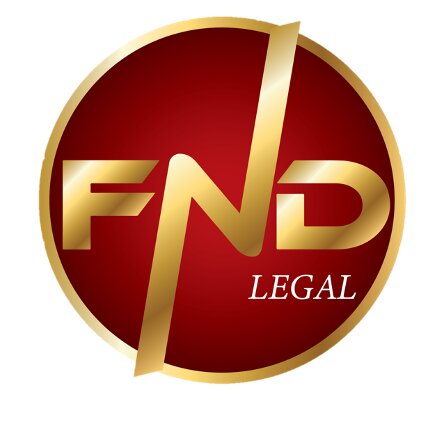Best Foreclosure Lawyers in Singapore
Share your needs with us, get contacted by law firms.
Free. Takes 2 min.
Free Guide to Hiring a Real Estate Lawyer
Or refine your search by selecting a city:
List of the best lawyers in Singapore
About Foreclosure Law in Singapore
In Singapore, foreclosure is a legal process that occurs when a homeowner is unable to make mortgage payments, and the lender seeks to recover the remaining loan balance by selling the property. This can happen with residential, commercial, or industrial properties. The process is regulated under the Singapore Land Titles Act and the Bankruptcy Act, which ensures procedures are adhered to fairly and legally. Foreclosure can be both judicial, where the court is involved, or non-judicial, carried out without court intervention based on the terms of the mortgage agreement.
Why You May Need a Lawyer
Foreclosure can be a complex and stressful process, and there are several situations where legal assistance might be essential. Firstly, if you're at risk of losing your home due to defaulting on mortgage repayments, a lawyer can help negotiate with your lender or explore options to prevent foreclosure. Secondly, if the foreclosure process has already begun, legal advice is crucial to ensure your rights are protected throughout the proceedings. Additionally, if you believe there has been an error or unfair practice in the foreclosure process, consulting a lawyer is advisable to challenge such actions.
Local Laws Overview
The foreclosure process in Singapore is governed by various legal frameworks. Key components include the Singapore Land Titles Act, which outlines the registration and transfer of land, and the Bankruptcy Act, detailing procedures for financial insolvency. In non-judicial foreclosures, the Power of Sale clause in mortgage agreements permits lenders to sell the mortgaged property if the borrower defaults. During judicial foreclosures, lenders must obtain a court order. It’s critical for borrowers to understand these laws and their rights during the foreclosure process.
Frequently Asked Questions
What is the difference between judicial and non-judicial foreclosure?
Judicial foreclosure involves court oversight in the foreclosure process, requiring lenders to file a lawsuit to obtain a court order to sell the property. Non-judicial foreclosure does not involve the court and is based on a Power of Sale clause in the mortgage agreement.
How long does the foreclosure process typically take in Singapore?
The timeline can vary, but non-judicial foreclosures may take a few months, while judicial foreclosures can be longer due to court involvement, potentially extending over a year.
Can a foreclosure process be stopped once it has started?
Yes, foreclosure may be halted by negotiating a repayment plan with the lender or through a court-ordered arrangement. Seeking legal advice promptly is crucial in such cases.
What are the typical costs involved in a foreclosure?
Costs can include legal fees, administrative charges, and possible penalties or interest on the outstanding loan amount. It is essential to consult a lawyer for an accurate assessment.
Can I reclaim my property after foreclosure?
Once the property is sold, reclaiming it becomes challenging. However, if the sale is still pending, negotiating with the lender or repaying the outstanding amount might enable you to retain ownership.
Are there personal repercussions if my property is foreclosed?
Beyond losing the property, foreclosure can affect your credit score and financial standing, influencing future loan applications.
Do legal protections exist for homeowners facing foreclosure?
Yes, homeowners have rights under Singaporean law. The process must be conducted fairly, and any violations can be contested legally.
Can bankruptcy affect foreclosure proceedings?
Declaring bankruptcy can impact foreclosure as it may lead to a temporary halt through an automatic stay, giving the debtor time to reorganize finances.
How does foreclosure affect tenants residing in the property?
Foreclosure does not immediately displace tenants, as tenancy agreements typically continue until completion of the sale, subject to legal provisions that may allow early termination.
What is a deficiency judgment?
A deficiency judgment is when the sale of the foreclosed property doesn't cover the entire mortgage balance, potentially making the borrower liable for the shortfall.
Additional Resources
For more guidance on foreclosure, consider reaching out to the following:
- Singapore Land Authority (SLA)
- Insolvency and Public Trustee’s Office (IPTO)
- Law Society of Singapore
- Community Justice Centre
- Housing & Development Board (HDB) for public housing-related queries
Next Steps
If you require legal assistance in foreclosure matters, consider consulting a lawyer specializing in real estate or insolvency law. You can start by contacting the Law Society of Singapore for recommendations or scheduling consultations with law firms experienced in foreclosure cases. Be proactive in understanding your rights and exploring all available options to navigate the foreclosure process effectively.
Lawzana helps you find the best lawyers and law firms in Singapore through a curated and pre-screened list of qualified legal professionals. Our platform offers rankings and detailed profiles of attorneys and law firms, allowing you to compare based on practice areas, including Foreclosure, experience, and client feedback.
Each profile includes a description of the firm's areas of practice, client reviews, team members and partners, year of establishment, spoken languages, office locations, contact information, social media presence, and any published articles or resources. Most firms on our platform speak English and are experienced in both local and international legal matters.
Get a quote from top-rated law firms in Singapore — quickly, securely, and without unnecessary hassle.
Disclaimer:
The information provided on this page is for general informational purposes only and does not constitute legal advice. While we strive to ensure the accuracy and relevance of the content, legal information may change over time, and interpretations of the law can vary. You should always consult with a qualified legal professional for advice specific to your situation.
We disclaim all liability for actions taken or not taken based on the content of this page. If you believe any information is incorrect or outdated, please contact us, and we will review and update it where appropriate.
Browse foreclosure law firms by city in Singapore
Refine your search by selecting a city.














